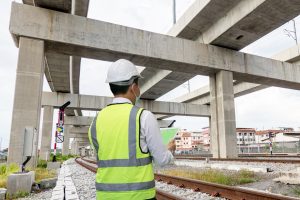The Internet of Things (IoT) offers a wide range of applications and solutions and one such use in smart cities is traffic management systems. Although often overlooked, traffic is one of the most important elements in determining a city’s live-ability and efficiency.
Traffic management is essentially the study of incoming and outgoing traffic data via specialized hardware and/or software to better manage congestion, pollution and safety.
Research has shown that integrating innovative traffic technology could even save cities as much as $277 billion annually.
In this article, we look at how adopting smart technologies can ensure a more sustainable, safer and efficient city life.
For more exclusive content on cellular connectivity and smart city use cases, sign up for our monthly newsletter today

Decrease congestion and carbon emissions
As more people move to cities, traffic becomes more intense, making congestion and traffic accidents more common. Research backs this up claim with INRIX suggesting that the average American driver loses 36 hours a year stuck in traffic, amounting to USD$564 in wasted time.

While on the commercial side, the U.S. freight sector loses $74.1 billion annually to congestion. Current traffic control systems are simply insufficient to control all city traffic and improve the comfort of drivers, pedestrians, and passengers.
If data and sensors are used effectively to regulate traffic, it becomes easier to mitigate and react to pressing concerns. All while reducing carbon emissions and helping cities meet sustainability goals in the near future.
According to Juniper Research, Global savings in CO2 emissions from smart traffic management systems could hit 205 MMT (Million Metric Tons) by 2027, a growth of 41 percent from 2022.
Increase driver safety by reducing violations
The World Health Organization (WHO) Road estimates that road accidents kill around 1.3 million people annually while injuring millions more.

Smart traffic systems can help identify traffic violations at intersections. Allowing authorities to prevent accidents and curbing dangerous driver behavior before they occur. Data could give insights on drivers that drive in public transport lanes, tailgating, sudden braking, and other careless driving activities.
For example, since installing a smart red light enforcement system in March 2023, the city of Liepāja, Latvia, has registered a 40 per cent decrease in violations. Although only implemented at a single intersection for now, the city hopes to scale its success across a wider area.
The traffic system has also been integrated into the police ticketing system where the city can also use the same data to issue traffic tickets.
Moving along
Integrating IoT solutions in traffic management can save smart cities a significant chunk of their time, money & resources, while making transport safer and more convenient.
With a CAGR of 26.1 percent, traffic management and IoT is expected to reach a market valuation of USD$3,352.97 billion by 2030. Continuing to gain momentum in the development & integration of infrastructure and services for future cities.
Essentially, smart traffic management solutions allow cities to increase and manage the capacity of city streets, without undertaking major investments in huge infrastructural projects.

Strong partnerships
Technological progress is quickly making its way into smart cities and the transport industry. Yet to fully realize its opportunities and understand how it can add value to your current solution.
Key players need an experienced connectivity partner that grows alongside you, tailoring customizable solutions for your evolving needs. Typically, the end device, network and application are treated as individually silo-ed solutions. A comprehensive connectivity partner allows you to innovate and maximise your solution by creating what you want.
At ZARIOT, we collaborate with ecosystem partners who are keen to bring innovation, simplicity and security to deployments through our applets. Providing a comprehensive toolbox of highly customizable IoT solutions that balance business, engineering and regulatory needs while alleviating urban challenges.
Additionally, safeguarding individuals’ privacy and data protection rights remain at the forefront of solutions. Enduring full compliance with GDPR and other cybersecurity regulations like the ETSI EN 303 645, PSTI Bill and more.
Wait no more, contact one of our industry experts to schedule a free consultation today.











